Female Sailor Survives Night of Terror After Yacht Wrecked by Killer Whales
Close call with a group of orcas.
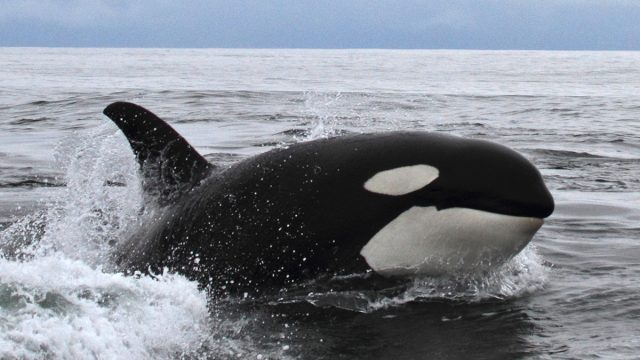
A British sailor has shared video of her close call with a group of orcas, which relentlessly attacked her ship off the coast of Spain, causing it to sink. And it’s just the latest of several recent ship attacks by the giant marine mammals more popularly known as killer whales. “Jesus, oh my God,” said April Boyes, as a group of orcas rammed into the yacht repeatedly. “It’s like they’re biting it apart!” she gasped as the thuds continued, ultimately destroying the ship’s rudder and gashing its hull. Read on to find out what ultimately happened to the ship, about two similar attacks that occurred in recent weeks, and what experts believe is the cause.
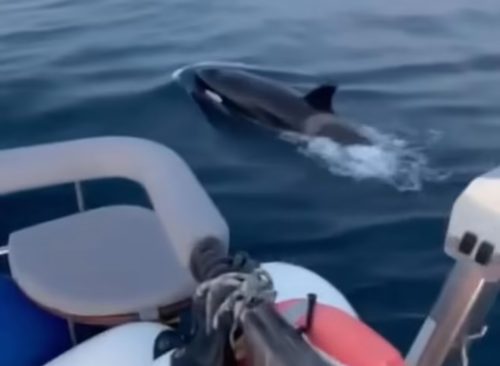
The group of orcas surrounded the yacht off the coast of Gibraltar last Thursday and started slamming into it, the Daily Mail reported. Experts believe one orca known as White Gladis started attacking ships in the area after being “traumatized,” and others have started to copy the behavior. In the video, Boyes narrates the attack while another crew member screams in the background. As night falls, the blows against the ship become more frequent. “We need assistance immediately, we are sinking, we are sinking,” a crew member is heard radioing authorities. Another crew member is seen with a bucket, trying to bail rising water out of the ship’s engine room.
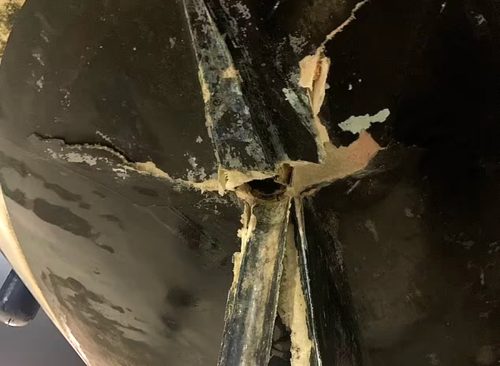
The four-member crew were ultimately rescued in the middle of the night by a Spanish coast guard ship and helicopter, and the ship was towed to port for repairs. “What started off as a seemingly unique encounter ended with orcas breaking off our rudder from the boat, then proceeding to tear bits off the boat for an hour,” Boyes told the Daily Mail. “A huge hole in the gull meant we had water ingress to other parts of the boat and the engine room and I can honestly say it was a scary experience. We are all safe, I’m feeling grateful for the coast guard.”
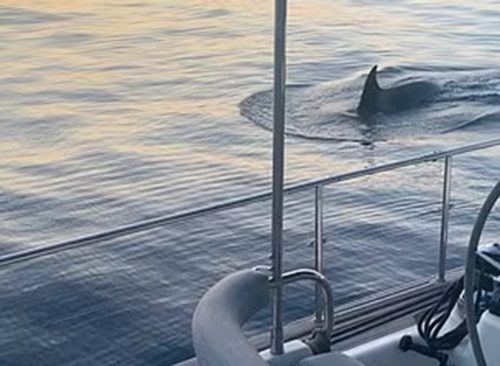
This month alone, at least 20 orca attacks on small vessels have been reported nearby. Experts believe a female killer whale called White Gladis was traumatized—by colliding with a boat or becoming entangled in netting—and is “teaching” other orcas to smack into ships in the area. On the afternoon of May 2, a British couple saw their 46-foot yacht attacked by about six orcas in the Strait of Gibraltar for nearly an hour. Stephen Bidwell, 58, told the Telegraph it was “an experience I will never forget. I kept reminding myself we had a 22-ton boat made of steel, but seeing three of them coming at once, quickly and at pace with their fins out of the water was daunting.” “I couldn’t believe it when I saw them,” said his partner, Janet Morris. “It’s extremely rare. We were sitting ducks.” “A clearly larger matriarch was definitely around and was almost supervising,” said Bidwell. The animals gave up after about an hour, but not before causing thousands of dollars worth of damage to the ship’s rudder.
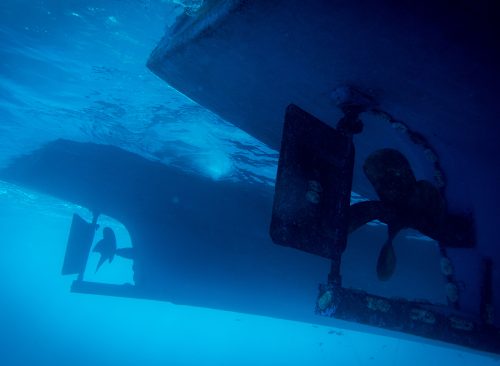
And on May 4, three orcas attacked another yacht and pierced the rudder, LiveScience reported. ”There were two smaller and one larger orca,” skipper Werner Schaufelberger told the German publication Yacht. “The little ones shook the rudder at the back while the big one repeatedly backed up and rammed the ship with full force from the side.” “The two little orcas observed the bigger one’s technique and, with a slight run-up, they too slammed into the boat.” The Spanish coast guard rescued the crew and towed the boat to port, where it sank.
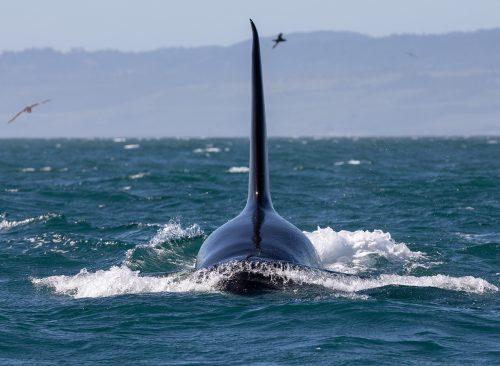
Boaters began encountering aggressive orcas off the Iberian coast in May 2020. Between July and October 2020, there were at least 40 orca incidents involving sailboats in the area around Spain and Portugal, the Maritime Executive reported. The attacks have become more frequent, according to a new study in the journal Marine Mammal Science. “The reports of interactions have been continuous since 2020 in places where orcas are found, either in Galicia or in the Strait,” said study co-author Alfredo López Fernandez, a biologist at the University of Aveiro in Portugal.
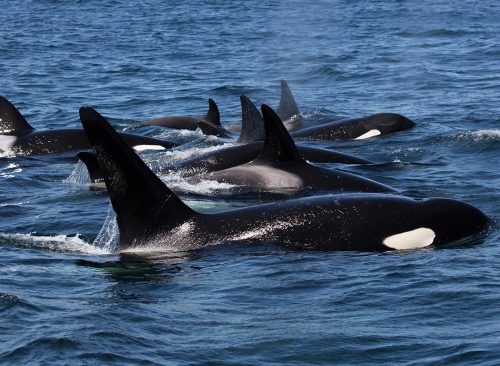
Orcas are social creatures that can easily learn and copy behaviors they observe, the new study says. The assaults seem to follow a pattern: Orcas approach from the stern, striking the rudder and bending or breaking it, then backing off when they’ve successfully stalled the boat. “The orcas are doing this on purpose, of course,” said Fernandez. “We don’t know the origin or the motivation, but defensive behavior based on trauma, as the origin of all this, gains more strength for us every day.”














